
The brown hairstreak is a butterfly in the family Lycaenidae. The range includes most of the Palaearctic.

Friedrich Joseph Adalbert Seitz, was a German physician and entomologist who specialised in Lepidoptera. He was a director of the Frankfurt zoo from 1893 to 1908 and is best known for editing the multivolume reference on the butterflies and larger moths of the world Die Gross-Schmetterlinge der Erde which continued after his death.

The scarce large blue is a species of butterfly in the family Lycaenidae. It is found in Austria, Slovenia, Croatia, the Czech Republic, France, Georgia, Germany, Hungary, Italy, Japan, Kazakhstan, Mongolia, the Netherlands, Poland, Romania, Russia, northern Serbia, Spain, Switzerland, and Ukraine and East across the Palearctic to Japan. The species was first described by Johann Andreas Benignus Bergsträsser in 1779.

Amblopala is a Palearctic and Indomalayan butterfly genus in the family Lycaenidae. The genus is monotypic containing the single species Amblopala avidiena the Chinese hairstreak. It is a small butterfly found in the Naga Hills of India and in China

Lopinga deidamia is a species of butterfly in the family Nymphalidae. It is found from the Urals to southern Siberia, China, Mongolia, Korea and Japan.

Tongeia fischeri, or Fischer's blue, is a butterfly of the family Lycaenidae. It was described by Eduard Friedrich Eversmann in 1843. It is found in south-eastern Europe, the southern Ural, northern and eastern Kazakhstan, south-western and southern Siberia, the Russian Far East, Mongolia, China, Korea and Japan.

Delias lativitta is a butterfly in the family Pieridae. It was described by John Henry Leech in 1893. It is found in the Indomalayan realm.
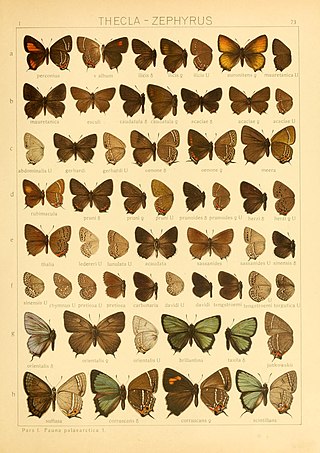
Chrysozephyrus brillantinus is a small butterfly found in the East Palearctic that belongs to the lycaenids or blues family.
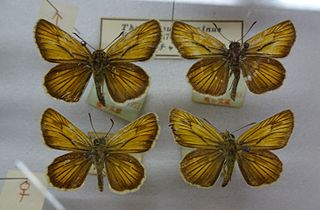
Thymelicus leonina is a small butterfly found in the East Palearctic that belongs to the skippers family.

Argynnis zenobia is a butterfly found in the East Palearctic that belongs to the browns family.
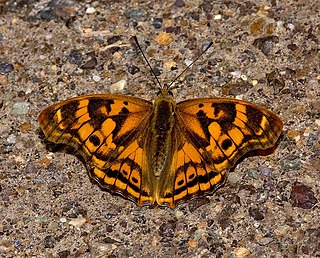
Apatura laverna is a butterfly found in the Palearctic that belongs to the emperors group within the brushfooted family. It is endemic to China.
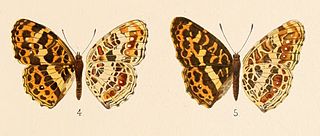
Araschnia doris is a butterfly found in the Palearctic that belongs to the browns family. It is endemic to West and Central China.

Araschnia davidis is a butterfly found in the Palearctic that belongs to the browns family. It is endemic to Tibet, West and Central China.

Araschnia oreas is a butterfly found in the Palearctic that belongs to the browns family. It is endemic to East Tibet and West China
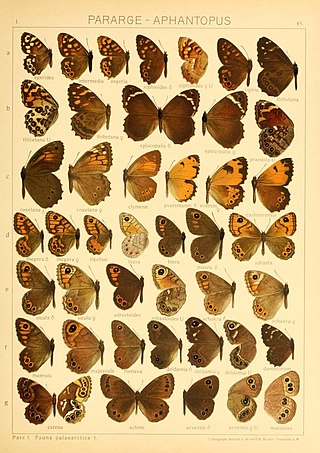
Aphantopus maculosa is a butterfly found in the Palearctic that belongs to the browns family. It is endemic to China.

Athyma recurva is a butterfly found in the Palearctic that belongs to the browns family. It is endemic to China.

Athyma disjuncta is a butterfly found in the Palearctic that belongs to the browns family. It is endemic to China

Athyma punctata is a butterfly found in the Palearctic that belongs to the browns family. It is endemic to China.

Callarge sagitta is a butterfly found in the East Palearctic that belongs to the browns family.

Callarge occidentalis is a butterfly found in the East Palearctic that belongs to the browns family.




















